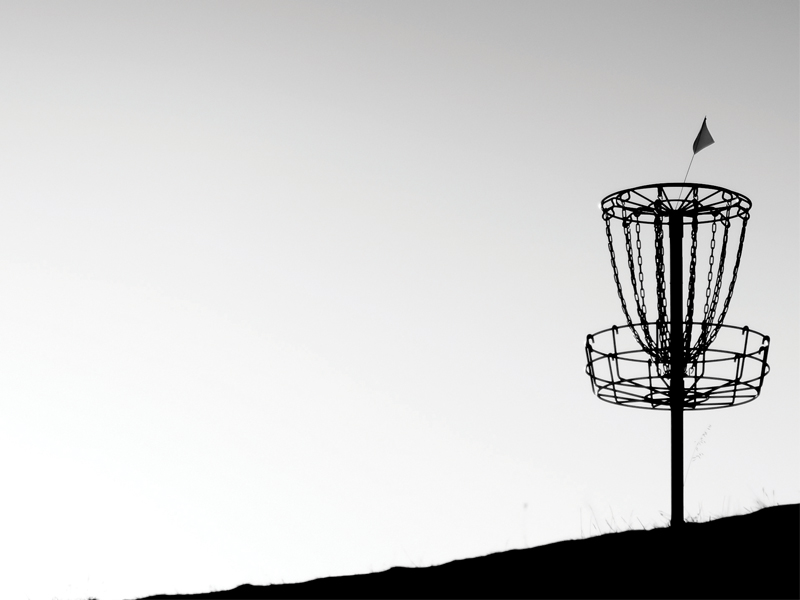Thousands of people around the world play disc golf each year. But the origins of this game— a combination of tossing around a flying disc and traditional ball golf—are somewhat obscure.
Some of the earliest versions of disc golf involved school kids tossing things like tin lids on a self-made golf course. By the 1970s, though, players competed in league play and tournaments…using those familiar plastic discs. Since then interest in the sport has continued to grow.
“It used to be there’d only be a few people out on a disc golf course on a weekend,” says John Roy, president of the Colonial Disc Golf Club. “Now there are people on every hole.”
Why Disc Golf?
When watching people play disc golf, it’s not surprising why it’s such a lure for people of all ages.
• Health The typical 18-hole disc golf course averages 3.3 miles, so you’ll get a good workout. “It gets you up and moving around,” says Roy. “It’s good for the cardio, because you have to do a lot of climbing hills.”
• Ease-of-Play Forget complicated rules and costly equipment. “It’s an easy game to catch on to,” says Roy. A starter disc only costs about 10 dollars, but once you get into the sport, you’ll probably want three or four discs.
• Family-Friendly “I’m seeing families on the course more often,” says Roy, “with mom and dad out there and the kids running around.” And even if the parents grow tired of playing, the kids will keep on throwing.
How to Get Started?
The discs used in disc golf are smaller and heavier than the throw-and-catch flying discs you’re probably familiar with. They also come in different versions. “You’ve got putters and drivers, and approach discs,” says Roy.
Each one flies differently due to its aerodynamics, so you’ll want to practice your throws before you hit the course.
“I highly recommend going out into a field with a friend, and you toss all your drivers to him and he tosses them back,” says Roy. “That way you get used to how they work. And you don’t have to do nearly as much walking.”
To learn the basics or to improve your skills, check out the workshops offered by one of the disc golf clubs in the area. When you’ve mastered a few moves, you can try your hand at a local tournament. You might even win a new disk—a great way to replace the ones you’ll inevitably lose in the piles of leaves in the fall.
If competing isn’t for you, don’t worry. There’s plenty of room in disc golf for people of all levels. “Remember that the goal of the game is to have fun,” says Roy. “If you’re not into being judged and you just want to go out there and have fun, it’s the perfect sport for it.”
Local Disc Golf Courses
• Bayville Farms Park, 4132 First Court Rd, Virginia Beach
• Munden Point Park, 2001 Pefley Ln, Virginia Beach
• New Quarter Park, 1000 Lakeshead Dr, Williamsburg
• Newport News Park, 13560 Jefferson Ave, Newport News
• Virginia Wesleyan College campus, Virginia Beach
• Waller Mill Park, 901 Airport Rd, Williamsburg
Equipment for Beginners
You’ll need three or four discs to start. Good discs for beginners weigh less than 170 grams; less than 150 grams is best for youths and people who can’t throw as hard. Start with putters and mid-range discs, and work your way up to longer-range drivers.
A gear bag is optional, but it will make it easier to carry your discs to and from the course.


